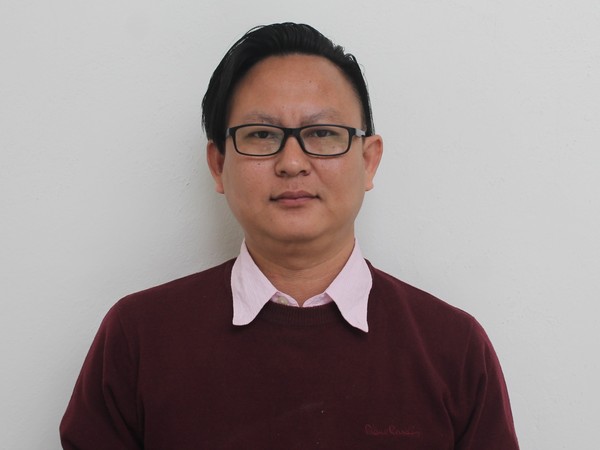Saw Min from Myanmar, who has been studying at the Department of Ecology and Environmental Sciences at the Faculty of Science since 2016, focused his dissertation on carbon dioxide emissions from rice cultivation. However, he cannot yet use the acquired knowledge in his home country, since his return became unexpectedly complicated after the February army coup. The management of the Faculty of Science has offered him a helping hand in the form of a temporary employment contract.
Thanks to the faculty, Saw Min will extend his stay in Olomouc, and hopes that the situation in Myanmar will calm down in the meantime and he will be able to return home.
Why did you decide to study in the Czech Republic?
I chose the Czech Republic mainly because of the reputation of the local university programmes, especially here at Palacký. Their very good reputation is linked to innovative learning methods, advanced technologies, and research opportunities. In addition, studying in the Czech Republic allowed me to learn new languages, get to know a different culture, overcome the challenges of living in another country, and better understand the world.
What did you expect from studying in the Czech Republic and what was the reality?
I expected to gain specific experience in a field that is the goal of my career. Furthermore, the experience from this study will be very useful for reducing greenhouse gas emissions from agriculture, which can be achieved in developing countries by applying sustainable approaches.
You were accepted for doctoral studies in Ecology at the Department of Ecology and Environmental Sciences. What topic did you choose for your dissertation?
I chose the topic of carbon dioxide emissions, which are released during rice cultivation, depending on the chosen method of management. The main goal was to find out how much CO2 is released during rice cultivation, because carbon dioxide is the greenhouse gas with the greatest impact on global warming.
What other projects have you worked on?
I also participated in the activities and scientific projects of the department focused on monitoring greenhouse gases, specifically methane and CO2 from small pools and South Bohemian ponds. This allowed me to grow personally and professionally, and I was able to better understand important aspects of my career.
How has the Covid-19 pandemic complicated your studies and personal life?
The impact of the coronavirus pandemic on my studies and life at university has been and still is significant due to the restrictive measures. But living alone in the dorms during lockdown, I had enough free time to write scientific publications, edit manuscripts and a doctoral dissertation.
This year you defended your dissertation. But a military coup took place in Myanmar, a state of emergency was declared, and Yangon International Airport was closed. What did this mean for you?
Despite successfully defending my dissertation, I now have a problem with my return home. The military coup and the current situation in my country complicate my situation considerably. I need to look for alternative ways to solve this problem. I therefore asked my colleagues at the department for help. Fortunately, I received a temporary job from the Faculty of Science – as a technician I will continue to work at the Department of Ecology and Environmental Sciences. Thanks to this, I have the opportunity to stay safe and, of course, cover all the necessary expenses associated with my stay in Olomouc. I really appreciate it and thank everyone who have contributed to this support.
Do you have any idea what awaits you in the coming months?
Depending on the development of the crisis in Myanmar, I can expect two options. Either the situation in Myanmar will calm down, and I will return home as soon as possible, or I will work for the department for the time being, look for other support options, and wait for the situation to further develop. My work visa is valid until the end of August 2021.
Saw Min joined the Department of Ecology and Environmental Sciences in 2016, when he was accepted to doctoral studies in the Ecology under the supervision of Martin Rulík. The main topic of his dissertation was the evaluation of CO2 production in rice paddy fields under different farming conditions. During his studies, he performed and evaluated an experiment in a greenhouse in Olomouc – Holice. He focused on the effect of the application of different doses of inorganic and organic fertilisers and water level manipulation on CO2 production. He conducted a second experiment on the experimental site of Yezin Agricultural University in Myanmar between January and July 2018. In this experiment, he compared the impact that conventional farming methods (tillage, fertilisation, pesticide use) have on CO2 production versus methods minimising rice intensification inputs.
At the same time, Dawit Ashenafi Ayalew from Ethiopia, who worked on a topic related to erosion processes in the agricultural landscape under the supervision of Bořivoj Šarapatka, has also successfully completed his doctoral studies. After the defence, he found himself in a similar situation as Saw Min. Dawit Ashenafi Ayalew will remain in Olomouc for at least another month, due to the closure of the border with Germany, where he will work in the future. This graduate is now being assisted by the Department of Ecology and Environmental Sciences.
